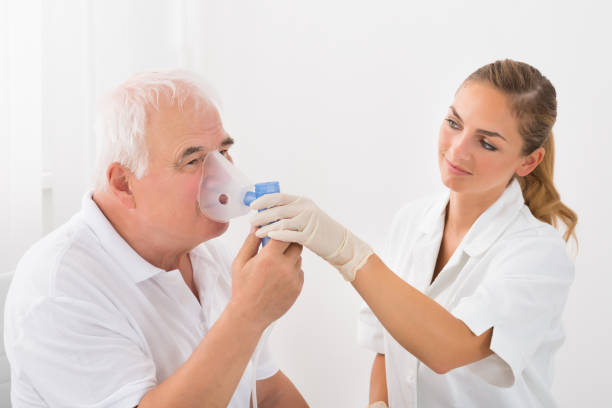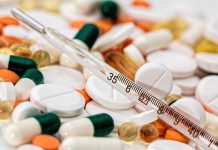Chronic obstructive pulmonary disease (COPD) is a lung disease that makes it hard to breathe. COPD is caused by damage to the lungs over time. This damage can be from long-term exposure to things that can hurt your lungs, like cigarette smoke, air pollution, or chemical fumes. COPD is a slowly progressive disease, which means it gets worse over time. The main symptoms are shortness of breath and a hacking, productive cough. Many people with COPD also have a lot of mucus in their lungs.
While a COPD diagnosis can be disheartening, there is hope. There are a variety of medications and treatments available to help manage COPD and relieve symptoms. In this article, we will explore the most effective treatments and medications for COPD. Keep reading to learn more.
Inhaled Medications
Inhaled prescriptions are the preferred method of treatment for COPD, as they are the most effective at clearing the airways and preventing exacerbations. There are a variety of inhaled medications available for COPD, and each patient will respond differently to different prescriptions. The most common type of inhaled medication for COPD is bronchodilators, which open the airways and make it easier to breathe. Bronchodilators come in two forms: short-acting and long-acting. Short-acting bronchodilators are used to relieve symptoms during an exacerbation, while long-acting bronchodilators are used to prevent exacerbations and improve long-term lung function. You can go about getting a prescription through telemedicine appointments.
Anti-Inflammatory Medications
There are a variety of anti-inflammatory medications available for the treatment of COPD. Leukotriene modifiers such as Singulair and Accolate are another class of medications that can be used to treat COPD. These medications work by blocking the action of leukotrienes, which are chemicals that contribute to inflammation. In some cases, medications such as prednisone may be prescribed to reduce inflammation in the airways. However, long-term use of prednisone can have harmful side effects, so it is important to only use this medication if it is prescribed by your doctor. If you want to learn more, consider master degree respiratory therapy options.
Oxygen Therapy
Oxygen therapy is thought to work by increasing the amount of oxygen that is delivered to the lungs. This increased oxygen can help to improve breathing and oxygen levels in the blood, which can help to improve the symptoms of COPD. There are a few different ways that oxygen therapy can be delivered, including through a face mask, nasal cannula, or ventilator. The type of oxygen therapy that is best for you will depend on your individual needs and symptoms. Your doctor can help you to decide on the best type of oxygen therapy for you and will also provide you with instructions on how to use it.
Surgery
There is no cure for COPD, but there are treatments that can help improve breathing and quality of life. One of these treatments is surgery. There are different types of surgery for COPD, but all of them involve removing damaged or diseased parts of the lungs. This can help improve breathing and quality of life for people with COPD. The type of surgery that is right for you will depend on your individual situation. Your doctor will help you decide if surgery is right for you and will talk to you about the risks and benefits of surgery.
Natural Remedies
Natural remedies for COPD include the following:
- Breathing exercises: Breathing exercises can help improve airflow and reduce shortness of breath.
- Pulmonary rehabilitation: Pulmonary rehabilitation is a program of exercises and education that can help improve breathing and quality of life.
- Supplementation with vitamins and minerals: Certain vitamins and minerals can help improve lung function and reduce inflammation.
- Acupuncture: Acupuncture may help improve airflow and reduce symptoms of COPD.
Overall, effective treatments and medications are important for COPD as they can help to improve symptoms and quality of life. The above are treatments and prescriptions to consider.









